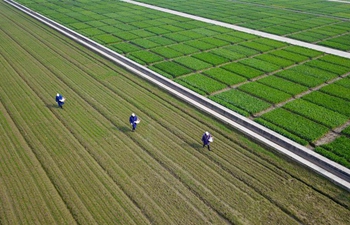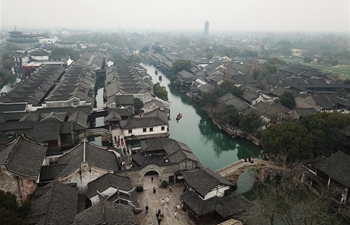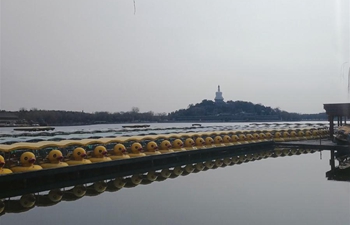CANBERRA, Feb. 27 (Xinhua) -- Whales in the Pacific Ocean could face a food shortage as climate change takes its toll on krill populations, Australian researchers have found.
A study conducted released by Australia's peak scientific body, the Commonwealth Scientific and Industrial Research Organisation (CSIRO), on Wednesday revealed that krill population is vital to the recovery of whale population around the world.
Using the CSIRO's Model of Intermediate Complexity for Ecosystem Assessment (MICE), researchers forecast that conditions for krill in the Pacific Ocean, the world's largest ocean, would be particularly bad as water temperatures rise.
"Krill is the main food source for whales, so we linked possible changes to krill levels in our southern oceans based on high carbon emissions predictions to whale populations in these areas," Viv Tulloch, the leader of the study, said in a media release on Wednesday.
"We found that the impacts on whale species could differ, depending on the region and where they feed," Tulloch said.
"Whale populations in the Pacific Ocean, particularly Blue, Southern Right and Fin whales, could have less krill to feed on than those found in the Atlantic and Indian Oceans," Tulloch said.
Adult blue whales consume approximately four tonnes of krill every day, the equivalent of 40 million of the small crustaceans.
Global whale population has been in a precarious position since entire species' faced extinction in the 1900s as a result of wide-scale whaling.
"Our modelling took into consideration the slow population growth rates of whales, the connection between life history and water temperatures, and dependency on prey to highlight the need for ongoing protection of already depleted whale populations," co-author Eva Plaganyi said.

















